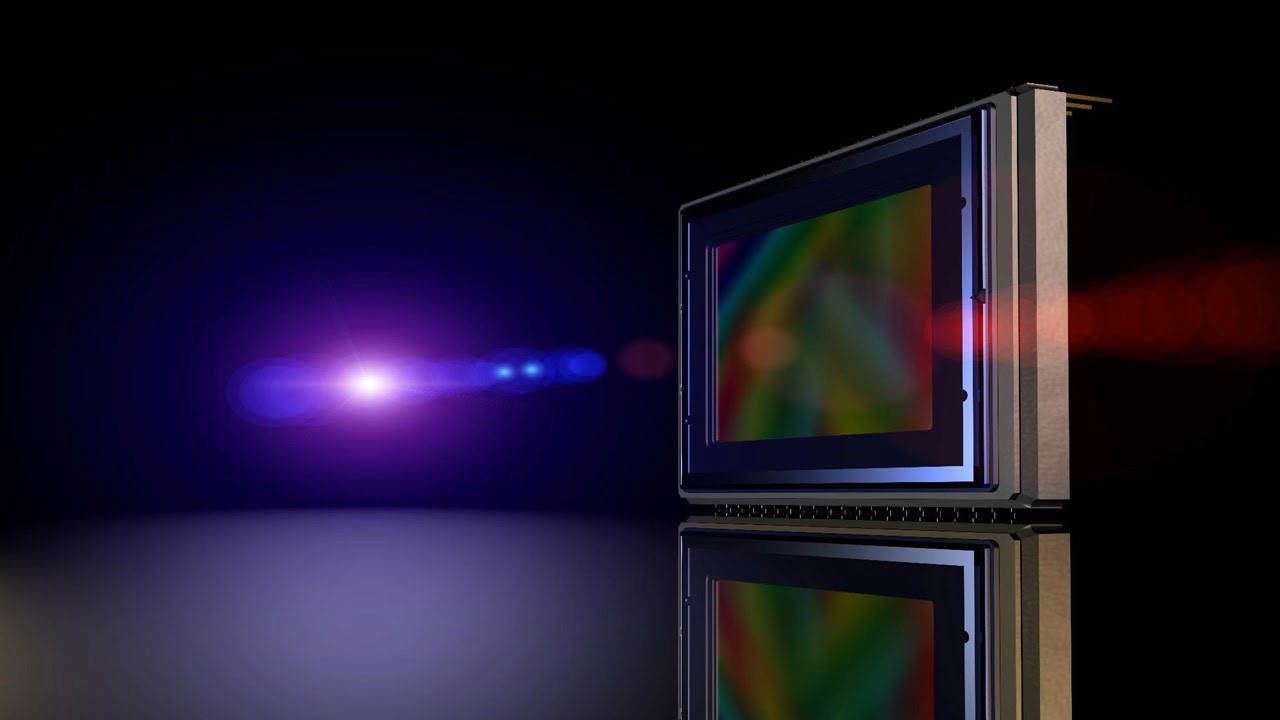
A system that measures a patient’s degree of pain by examining brain activity from a portable neuroimaging device has been created by researchers. The method may assist medical professionals in identifying and managing pain in unconscious and nonverbal patients, potentially lowering the risk of postoperative chronic pain.The researchers outline a technique to measure patient discomfort [..]
Read More
Tip-enhanced resonance Raman spectroscopy (TERRS) has been demonstrated by research. The results suggest that TERRS could offer a new approach for the atomic-scale optical characterization of local electronic states. On extremely thin zinc oxide layers that were epitaxially grown on an Ag(111) surface and in which both physical and chemical enhancement mechanisms were in operation, [..]
Read More
Since the advent of digital computing, scientists have imagined creating artificial neural networks that would handle challenging issues by functioning like biological brains. Researchers have attempted to build neural networks that would operate at the speed of light as nanophotonic circuits became a reality. However, translating the nonlinear activation function, a crucial mathematical element of [..]
Read More
Due to its capacity to recover oxy- and deoxyhemoglobin concentrations, functional near-IR imaging is a promising method for neuroimaging and brain mapping. However, because tissues naturally scatter much NIR light, strategies to improve image clarity and quantitative accuracy must be considered. The functional near-IR spectroscopy (fNIRS)-based optical imaging of the brain has recently undergone what [..]
Read More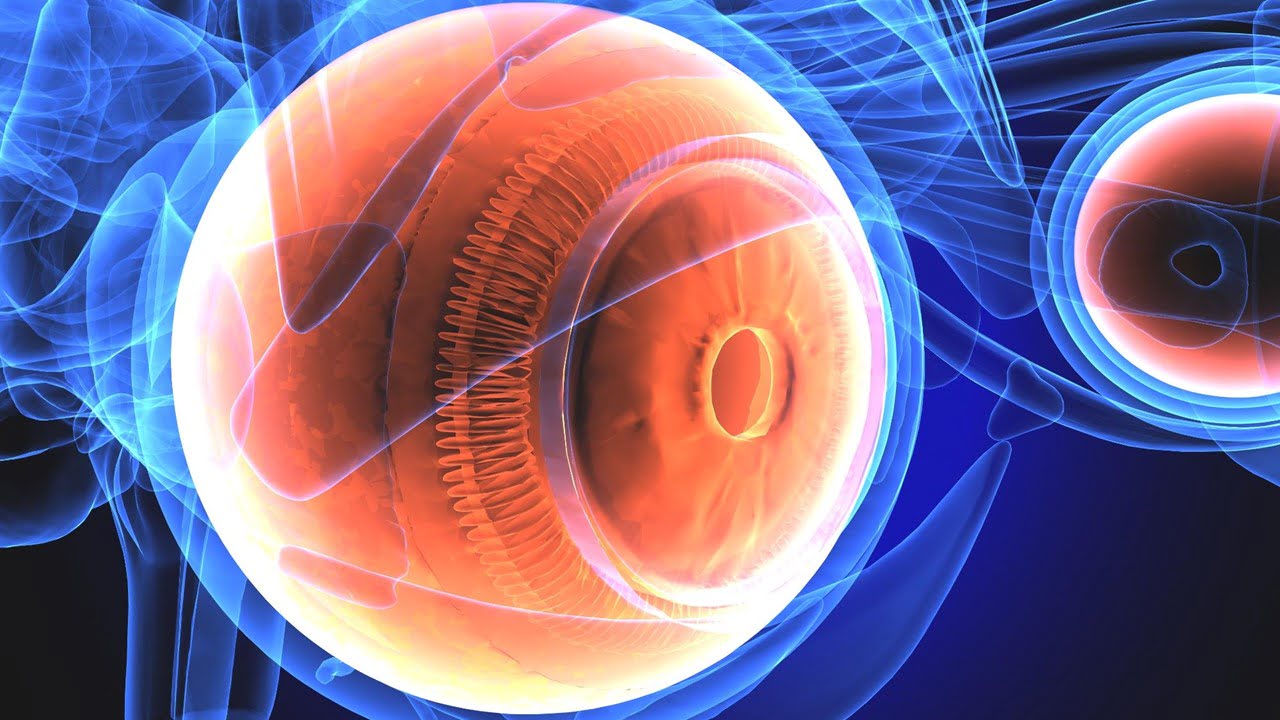
Using machine learning, biomedical engineers have developed a technique to improve optical coherence tomography (OCT) resolution to a single micrometer in all dimensions, even in a living patient. The multibillion-dollar optical coherence tomography (OCT) market could benefit from the new optical coherence refraction tomography (OCRT) method by getting better medical images for fields like oncology [..]
Read More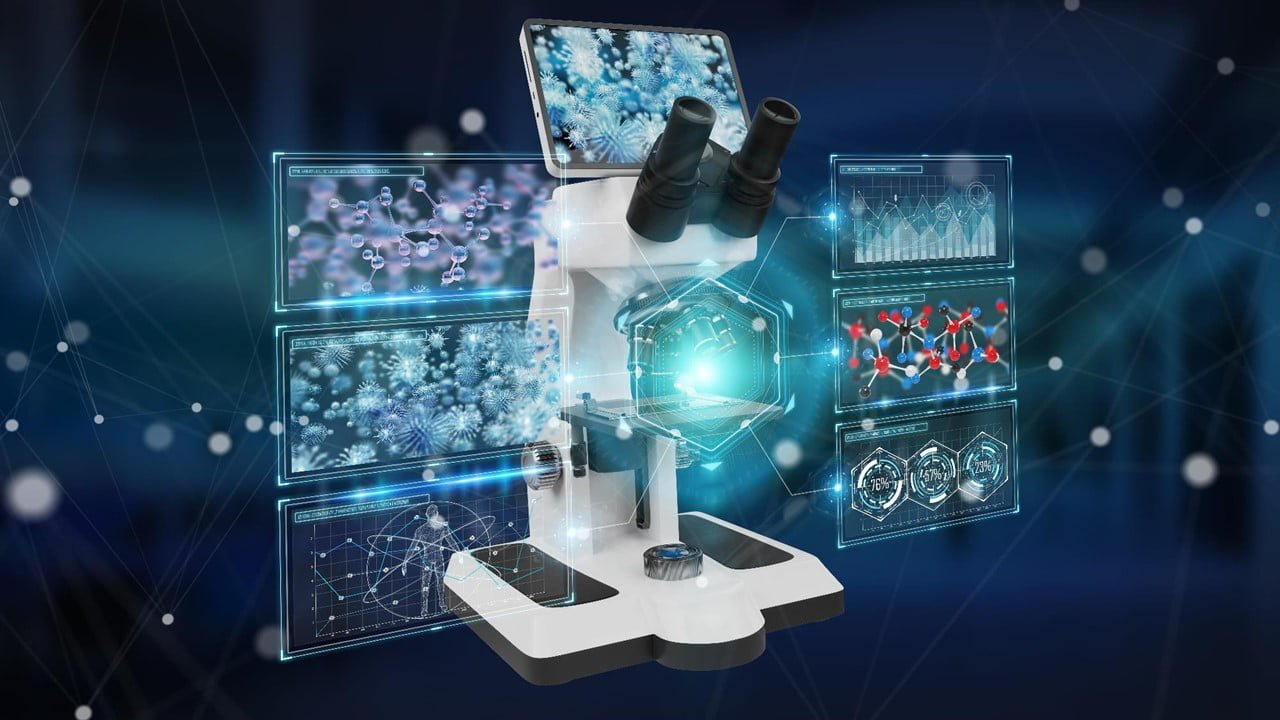
Scientists are using data science tools to study molecular activity faster than traditional fluorescence correlation spectroscopy (FCS) allows. While FCS estimates dynamical quantities, it requires high signal-to-noise ratios and time traces in the microsecond range. The researchers are using Bayesian analysis to overcome the limitations of fluorescent correlative methods in deducing molecular properties such as [..]
Read More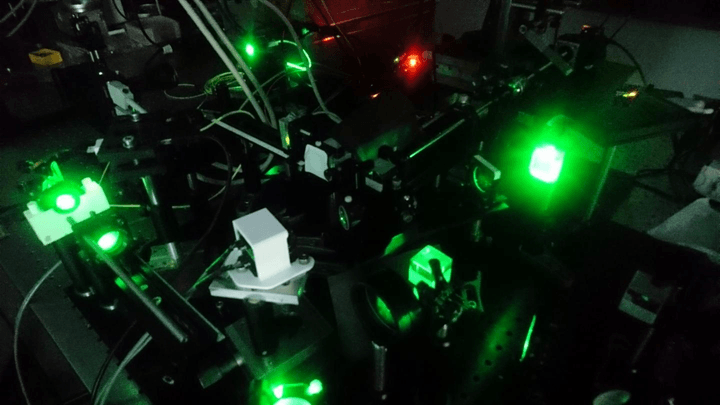
A team of researchers at the Dresden University of Technology (TU Dresden; Dresden, Germany) has developed a self-calibrating lensless endoscope that produces 3D images of objects smaller than a single cell. Without a lens or any optical, electrical, or mechanical components, the tip of the endoscope measures 200 µm across. As a minimally invasive tool [..]
Read More
Since rheumatoid arthritis (RA) is an autoimmune disease in which the patient’s immune system attacks the lining of their joints, it is generally accepted that aggressive therapy administered within the first three months of the onset of symptoms enhances long-term outcomes for those with RA. Due to the pain, swelling, and damage caused by this [..]
Read More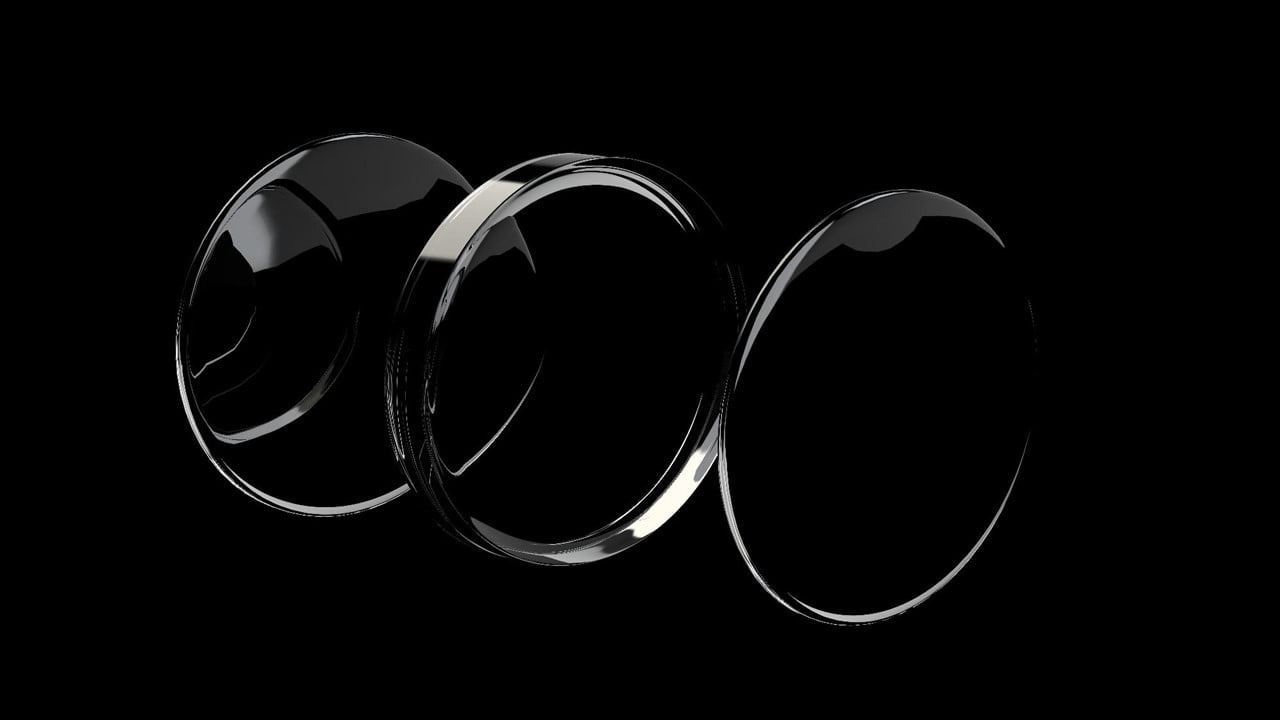
Building an adjustable zoom lens in a millimeter-thick cell phone, a miniaturized microscope, or the distal end of a medical endoscope necessitates complex lenses that can handle the entire optical spectrum and be electrically reshaped within milliseconds. Researchers have demonstrated an adjustable technique for manipulating light without the use of mechanical movement, resulting in devices [..]
Read More
The noninvasive imaging of body organs through turbid biological tissues like skin and muscle is made possible by a novel bio-imaging method that combines ultrasound and optical processes. This newly created optical imaging technique may replace the need for intrusive visual examinations using endoscopic cameras. To examine and identify symptoms of deep tissue disease, invasive endoscopic [..]
Read More
Astronomers may soon be able to view galaxies, stars, and planetary systems in exquisite detail thanks to researchers’ development of an ultra-sensitive light-detecting system. The terahertz sensor operates at room temperature, an advance over comparable technology that can only operate at or near minus 454 degrees Fahrenheit. The terahertz sensor generates images with extremely high [..]
Read More
A ground-breaking imaging technique created by researchers offers hope for cleaning up water by providing unexpected and crucial data about catalyst particles that can’t be obtained in any other manner. They have created a technique to capture images of catalytic nonfluorescent reactions, or processes that don’t produce light, on nanoscale particles. The new technique could [..]
Read More
According to a recent study titled “The Current Reality of Facial Recognition,” although AI technology has progressed, there is still a long way to go. The article’s opening line reads, “With closed-circuit television (CCTV) cameras installed everywhere, from shops to buses to private homes, the UK is one of the most watched nations in the [..]
Read More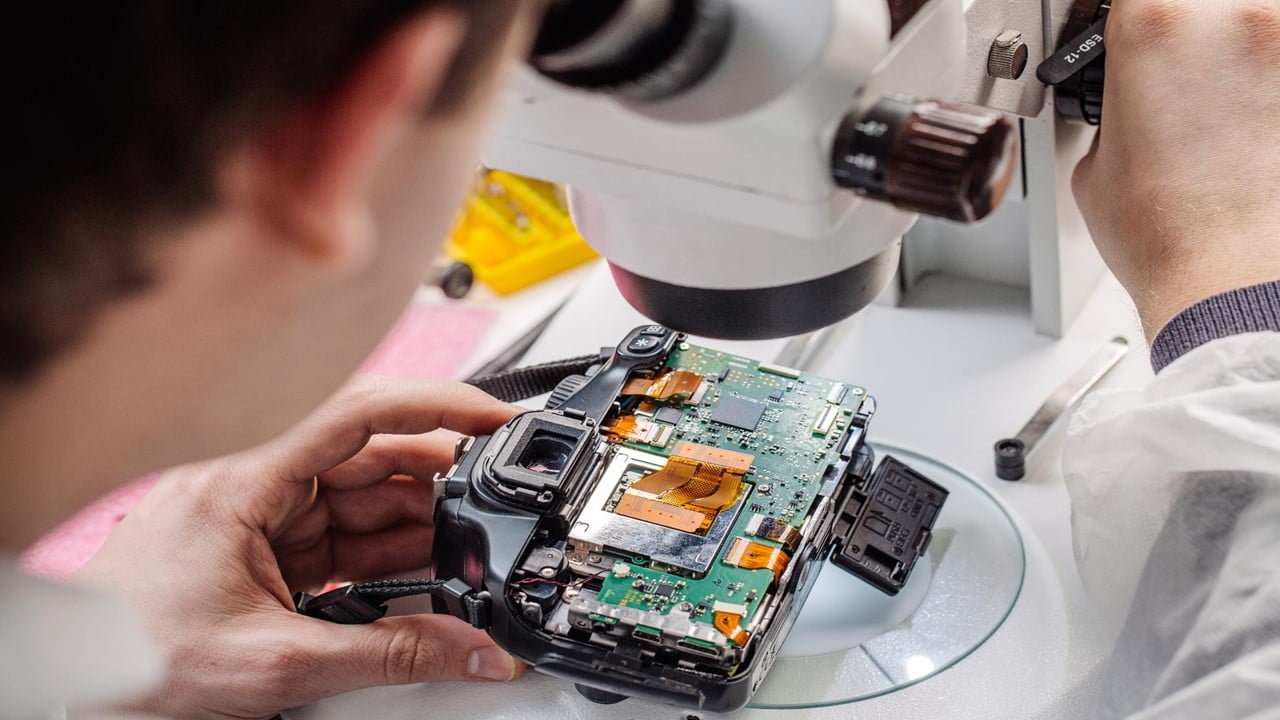
Microlenses have previously been created using microscopic glass blowing, but this typically entails gas expansion from a single reservoir. Researchers have now created a technique for fabricating axicons that use gas expansion from various reservoirs to create the conical shape of the optical component. Unlike conventional methods like etching transfer from a 3-D mask that [..]
Read MoreAmoebas are unusual creatures that form when a dispersed population of cells spontaneously comes together and reorganizes itself into a multicellular macroscopic organism. To do this, a few leader cells emit chemical pulses that cause the other individual cells to move in the direction opposite to that of the traveling pulses, leading to the formation [..]
Read More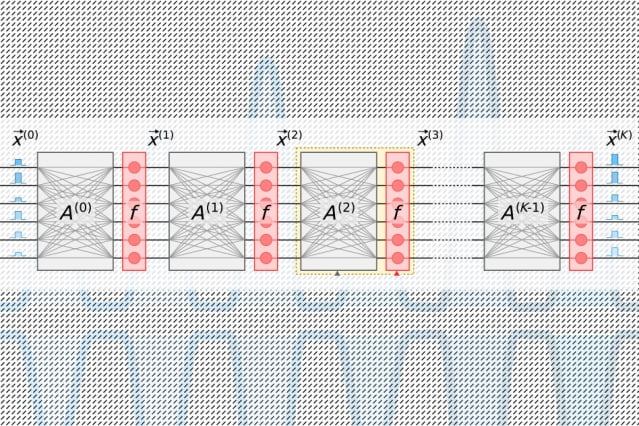
Researchers have developed a novel photonic chip that uses light instead of electricity — and consumes relatively little power in the process. The chip design could be used to process massive neural networks millions of times more efficiently than today’s classical computers do. Neural networks are machine-learning models that are widely used for such tasks [..]
Read More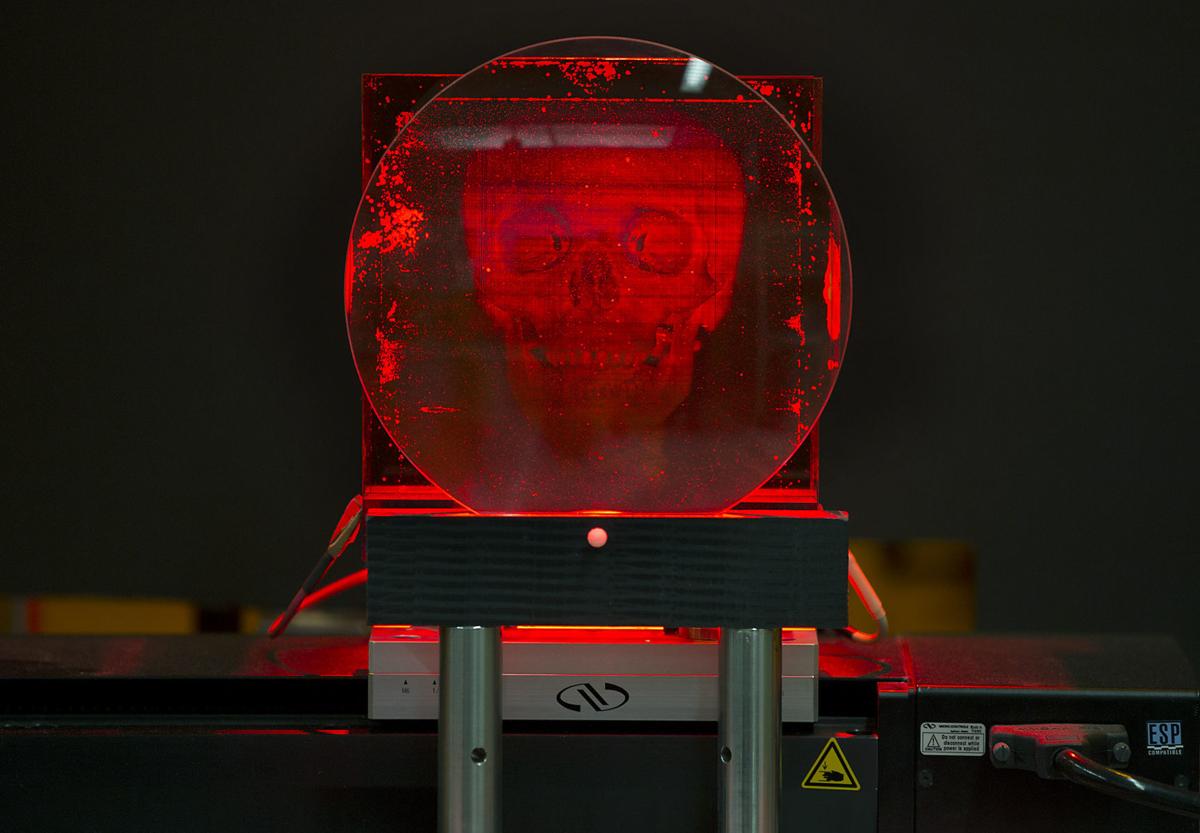
Scientists are working to perfect a new type of holographic display technology that can be incorporated into eyeglasses to superimpose video images on a user’s real-world view. The technology eventually could be incorporated into regular eyeglasses. Virtual reality systems are used with VR apps to create an immersive experience while blocking out the real world. [..]
Read More
A team of biophysicists has created a new fluorescent protein that not only glows when irradiated with ultraviolet and blue light but is also exceedingly small and stable under high temperatures. The research team believes the protein holds promise for fluorescence microscopy, a technique being used in research on cancer, infectious diseases, and organ development. [..]
Read More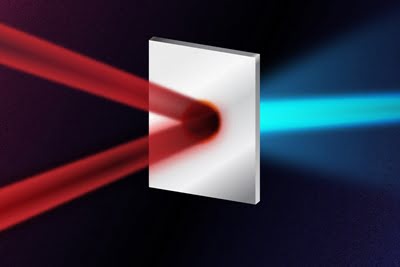
Early-stage research by a university team suggests that a new laser setup will double the energy of a proton beam – potentially offering a route to much wider access for high-precision cancer therapy. While proton beam treatment is already used on some patients, in particular children with deep-seated brain and spinal tumors that are difficult [..]
Read More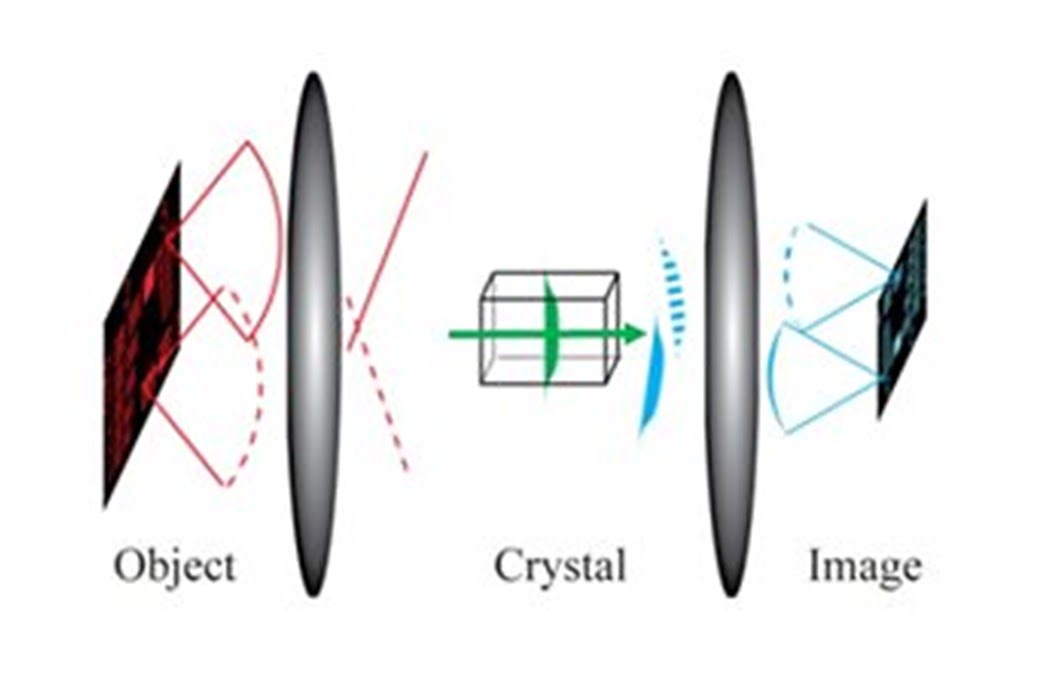
Researchers have developed a unique high-resolution imaging method that can capture mid-infrared spectral images of fast events or dynamic processes that take place on the order of milliseconds. This spectral range is used for many applications because it can reveal the detailed chemical composition of a sample. This novel approach could one day be used [..]
Read More